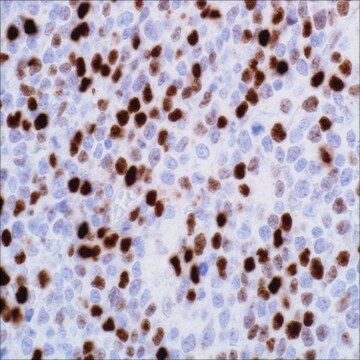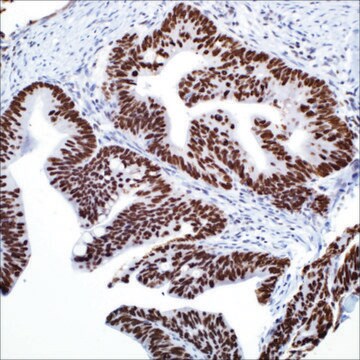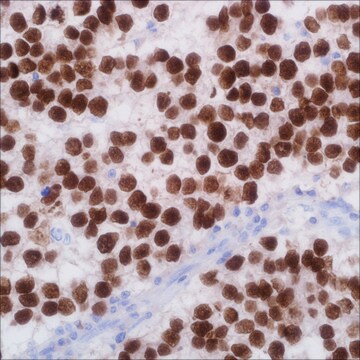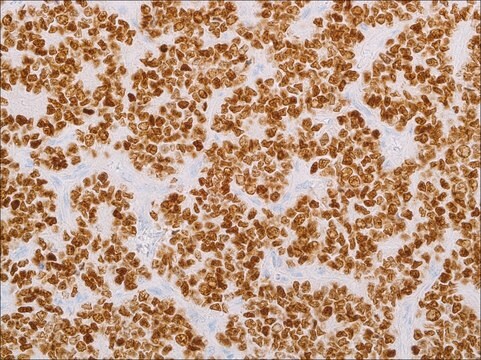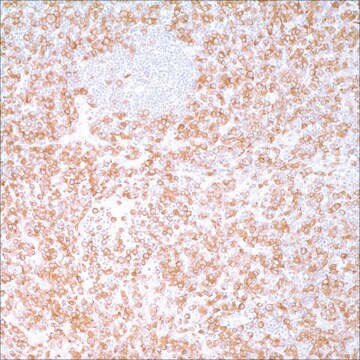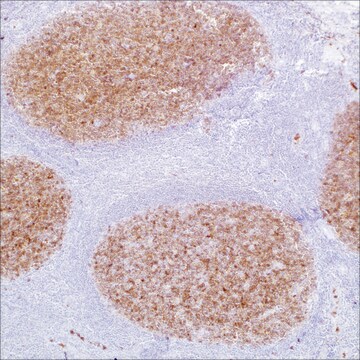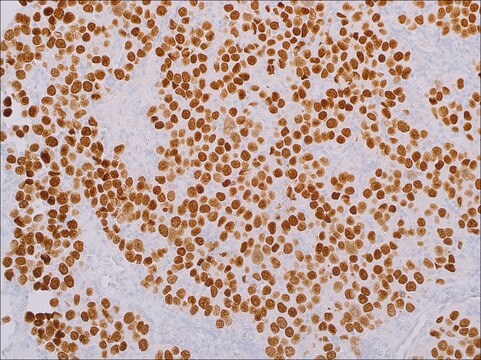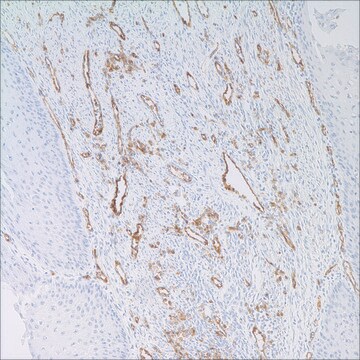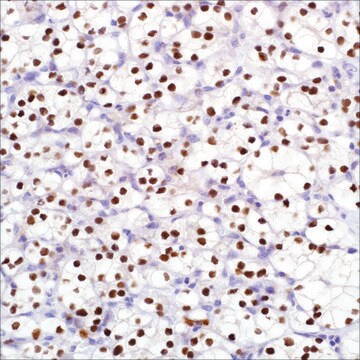902H-0
Cytokeratin 5 & 6 (D5/16B4) + TTF-1 (8G7G3/1) Mouse Monoclonal Antibody
About This Item
Recommended Products
biological source
mouse
Quality Level
100
500
conjugate
unconjugated
antibody form
culture supernatant
antibody product type
primary antibodies
clone
D5&16B4 + 8G7G3/1, monoclonal
description
For In Vitro Diagnostic Use in Select Regions (See Chart)
form
buffered aqueous solution
species reactivity
human
packaging
bottle of 1.0 mL predilute (902H-07)
bottle of 7.0 mL predilute (902H-08)
isotype
IgG1
shipped in
wet ice
storage temp.
2-8°C
Gene Information
human ... KRT5(3852)
General description
Quality
 IVD |  IVD |  IVD |  RUO |
Physical form
Preparation Note
Other Notes
Not finding the right product?
Try our Product Selector Tool.
Choose from one of the most recent versions:
Certificates of Analysis (COA)
It looks like we've run into a problem, but you can still download Certificates of Analysis from our Documents section.
If you need assistance, please contact Customer Support.
Already Own This Product?
Find documentation for the products that you have recently purchased in the Document Library.
Our team of scientists has experience in all areas of research including Life Science, Material Science, Chemical Synthesis, Chromatography, Analytical and many others.
Contact Technical Service